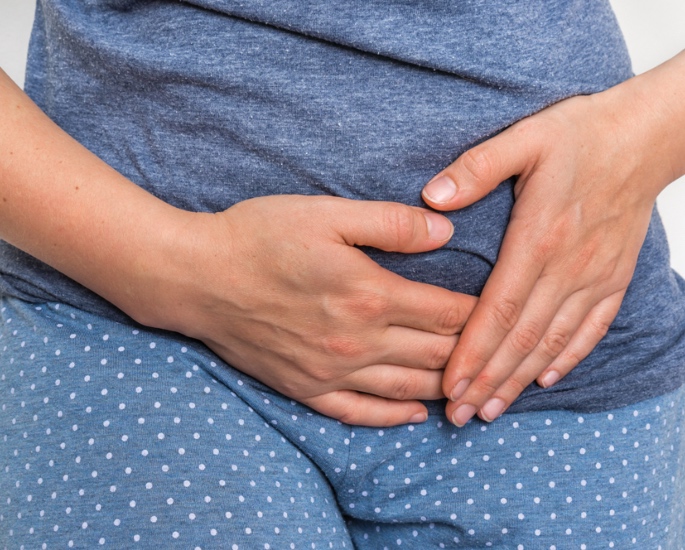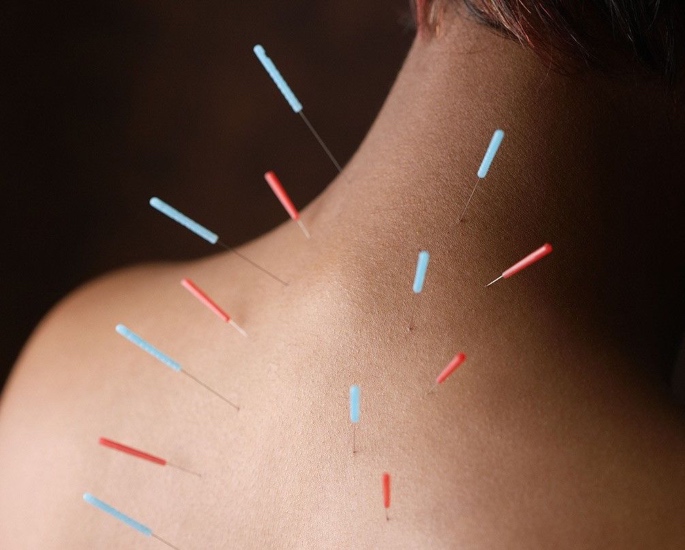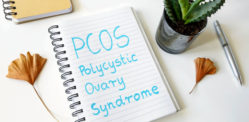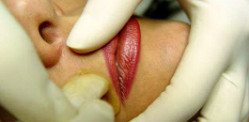It can affect all aspects of life for women
Polycystic Ovary Syndrome (PCOS) is an extremely common hormonal condition affecting women of reproductive age.
PCOS is one of the leading causes of fertility problems in women. It affects 1 in 10 women in the UK.
The condition can manifest itself differently for each woman, therefore it is often quite difficult to manage your symptoms yourself.
Understanding PCOS and your own personal symptoms can be a difficult task.
Therefore, DESIblitz explores PCOS in more detail and how you can naturally start to relieve your symptoms.
What actually is PCOS?

PCOS was first discovered in 1935 by Doctors Stein and Leventhal. It is an extremely common hormonal condition that causes hormonal imbalances and insulin resistance.
When you have PCOS the ovaries develop a number of harmless follicles that can actually be up to 8mm in size.
According to the NHS website:
“The follicles are underdeveloped sacs in which eggs develop. In PCOS, these sacs are often unable to release an egg, which means ovulation does not take place.”
Verity, a PCOS charity established in 1997, express how often one can be confused about the disorder by the name, explaining:
“The ‘cysts’ in polycystic ovaries are not true cysts. They are not full of liquid, they do not get bigger or burst, they do not require surgical removal and do not lead to ovarian cancer.
“They are actually follicles that have not matured to be ovulated, which is why the name of the condition is confusing.”
Usually, all women produce small amounts of the male hormone, testosterone, however, women with PCOS have higher levels of testosterone.
This is down to the resistance of insulin in women with PCOS that causes the ovaries to produce too much testosterone.
Check out the Verity website for more in-depth details on PCOS.
Common Symptoms of PCOS
Dr Aruna Kalra, from the Obstetrics and Gynaecology department at the CK Bitla Hospital in Gurugram, India expressed:
“It [PCOS] is a metabolic syndrome, which means it can affect every organ system of your body.”
Unfortunately, this means there can be a variety of symptoms associated with PCOS, aside from the common symptom of irregular periods.
Some of the symptoms of PCOS are:
- Irregular periods or prolonged time without periods
- Irregular ovulation, or no ovulation at all
- Infertility or difficulty getting pregnant
- Acne
- Excessive facial or body hair growth – known as hirsutism (due to the higher levels of testosterone)
- Weight gain
- Fatigue
- Difficulty losing weight
- Depression
- Thinning of hair on the scalp
Bollywood actress, Sonam Kapoor shared within an Instagram video that she too has been suffering from PCOS since her teens.
In her Instagram video series ‘Storytime with Sonam’, she shared her experience with PCOS and some tips on how she deals with it. Within the video she stated:
“People have very different symptoms, everyone goes through their own struggles, so everyone is a unique case.”
This is certainly the case; it is important to note that having PCOS is not a “one size fits all” type of thing. It can vary greatly from woman to woman.
Some women may experience all of these symptoms stated, while others just a few.
Some women may experience intense symptoms, while others do not notice much disturbance in their everyday life.
Diagnosis
Due to the range of symptoms that manifest themselves differently for each woman, the symptoms can be mistaken for other disorders.
In ‘PCOS: A Woman’s Guide to Dealing with Polycystic Ovary Syndrome’ (2000) published by Colette Harris and Dr Adam Carey, they express:
“It is estimated that one in ten women has this condition, even though many of them may not know it because their symptoms may be diagnosed as PMS, for example.”
Due to the range of symptoms often some women overlook some of the symptoms thinking they are normal.
In 2017 a qualitative study by the Endocrine Connections journal was published about women with PCOS in Britain.
The study comprised of interviews from a range of Caucasian, South Asian and Black African women and explored their experience of PCOS.
When exploring their diagnosis with PCOS one South Asian woman explained that for years she thought her symptoms were just part and parcel of being Asian, explaining:
“Tiredness, heavy periods, which I took as normal, extreme hair growth which, as an Asian person, I took as normal.”
This is extremely common among South Asian women who often put excessive hair growth down to “just being Asian”.
If properly managed or detected earlier PCOS can be managed, in order to reduce further health issues later in life.
Therefore, it is important to seek medical advice if you feel you have PCOS, so you can get a correct diagnosis.
Treatment
PCOS is a lifestyle disease. It can affect all aspects of life for women from their mood to appearance.
Some of the symptoms, such as weight gain or excessive hair growth, can impact one’s self-esteem greatly.
When DESIblitz interviewed a young British Pakistani woman, she expressed that:
“I was diagnosed at a young age and at that moment I was told to just wait and see what happens as I was still young and not planning to have children anytime soon.”
This is a sentiment that many women feel, as doctors tend to only address PCOS symptoms if you are struggling to conceive.
Unfortunately, while there is no cure for PCOS, many things can be done to help manage and relieve symptoms.
In terms of medically, doctors can prescribe tablets such as clomifene, which encourages ovulation in those women that struggle to get pregnant.
Also, doctors can often prescribe the contraceptive pill in order to help regulate period cycles.
The use of the pill is not always effective or the preferred choice of treatment. Within the 2017 study by the Endocrine Connections journal, one 29-year-old South Asian woman highlighted the cultural stigma surrounding the pill:
“I’m from an Asian family, where obviously, he [the doctor] did say it was a contraceptive pill and that’s a very taboo thing for an unmarried girl to be taking, a contraceptive pill.”
The pill being a cultural taboo for unmarried girls is often felt strongly among the older South Asian community.
A registered dietitian, Samantha Bailey, speaking to the Verity organisation affirmed that aside from irregular periods:
“Many women with PCOS do find it difficult to lose weight, as the associated hormone disturbance can encourage weight gain. However, there are lots of women who have PCOS and are a healthy body weight.
“So be reassured that it is possible to limit weight gain and that having PCOS is not an automatic life sentence of being overweight.”
As Bailey and Speelman said, PCOS is not an automatic life sentence many things can be done to naturally reduce or manage symptoms.
Tip 1: Exercise

If you have been diagnosed with PCOS you may have been repeatedly advised that losing weight is the best way to manage symptoms.
Like even a little bit of weight loss can improve insulin resistance, menstrual cycles and hormone levels in women with PCOS.
However, sometimes this can be easier said than done. Women without PCOS can find it extremely hard to lose weight, therefore the added addition PCOS can sometimes make it feel impossible.
The young British Pakistani woman interviewed expressed that:
“In recent years I have gone back to the doctor and have been given the contraceptive pill to help regulate periods and simply was told that weight loss would also help my symptoms, but was not given any guidance.
“I find losing weight really difficult, even when I try every workout video out there, I don’t see the same results that others without PCOS do.”
These sentiments are felt by many women with PCOS. You may feel like you are alone with your symptoms and confused about what to do.
However, while it is difficult to lose weight with PCOS, it is not impossible.
When someone says you need to start exercising to help symptoms it can be extremely daunting.
As you may think you need to exercise for hours seven days a week in order to see results, however, this is not the case.
Even small improvement’s in your daily activity levels can start to make a change to PCOS symptoms.
Within Sonam Kapoor’s Instagram video on her tips of dealing with PCOS, she reiterates the importance of walking and said that the simplest exercise is walking. She expressed:
“Our lifestyle has become sedentary. I walk at least 10,000 steps a day.”
Walking is often an overlooked form of exercise, but can have a lot of benefits to your health.
Shazeen, a PCOS nutritionist and owner of ‘The PCOS Revolution Program’, stated within an informative Instagram post that:
“Even just 15 minutes of exercise has been shown to improve blood glucose uptake.”
Therefore, getting up and moving, even for a short period of time, will have great benefits to your symptoms.
Yet, as with anything you have to stay consistent – try going on a short 15-minute walk daily to get some fresh air and your activity level up.
However, if you are looking for little more of a workout then try some low-intensity workouts, HIIT workouts or strength training. These are workouts that will reduce insulin resistance.
Within an Instagram post by nutritionist Shazeen, she mentioned how high-intensity workouts, such running for hours is not beneficial to PCOS, explaining:
“This is because these exercises raise our stress hormone cortisol.
“This hormone is our fight or flight hormone that makes our body release glucose and raise our blood sugar, this is then stored as fat by insulin. Because we already have loads of insulin in our blood from insulin resistance.”
Therefore, try doing HIIT workouts, which are bursts of short high-intensity workouts, followed by a rest period.
As long periods of cardio are not beneficial for PCOS, HIIT workouts actually help to burn more calories in a short amount of time. They also reduce insulin resistance and does not raise cortisol levels.
HIIT workout can consist of 45 seconds of doing either star jumps, burpees, high knees or squat jumps, followed by a 15-second break between each exercise. Each set is usually repeated 2 or 3 times.
If you are looking for a beginner HIIT workout checkout Shazeen’s post on @the.pcos.nutrtionist page:
Alongside HIIT workouts, it will be useful to combine some strength training workouts.
The thought of doing strength training may be quite daunting and you may associate it with simply wanting big muscles.
However, within an Instagram post Shahzeen mentioned how:
“Strength training workouts are one of the best workouts for PCOS. They help fight insulin resistance and inflammation and don’t raise testosterone levels.”
Strength training workouts can consist of squats, crunches, a plank, hip bridges or ab bicycles.
Strength training can also incorporate dumbbells into a lunge or overhead shoulder presses.
If you are looking for a beginner strength training workout checkout Shazeen’s post on @the.pcos.nutrtionist page:
Tip 2: Yoga

Within Sonam Kapoor’s advice video she also reiterated the importance of yoga in reducing PCOS symptoms, explaining:
“Yoga makes you mobile. It makes you strong. It improves the cardiovascular ability with surya namaskar and improves strength through hatha yoga. It is one of the best all-round exercises.”
If you have PCOS it may be useful to incorporate yoga into your routine, as the breathing exercises commonly done in yoga can relieve stress.
Stress is a factor that can aggravate PCOS symptoms. Speaking to the Stylist, Dr Amalia Annaradnam from the London Hormone Clinic, explained how:
“Research suggests that yoga is a practice that helps to relax the sympathetic nervous system, which is the system that activates stress hormones like adrenalin and cortisol.”
Further explaining how:
“Stress can exacerbate all existing hormonal imbalances so hypothetically speaking, if yoga can help to reduce that stress activation, it might help to minimise androgen sensitivity.”
A 2019 study on yoga practices and PCOS by Vishesha Patel et al found that women who engaged in three yoga sessions weekly saw an improvement in their male androgen levels.
The women within the study also saw a significant improvement in their depression and anxiety after partaking in yoga.
Aside from stress, some research indicates that regular yoga can, in fact, help to regulate irregular periods.
According to a 2019 article by the Beyond Pink World, the butterfly, Bharadvaja’s Twist and Boat yoga poses can be particularly beneficial when treating irregular periods.
Therefore, it may be beneficial to partake in yoga or simply daily breathing exercises, as a way to unwind and help relieve PCOS symptoms.
Check out this yoga routine by Yogalates With Rashmi

Tip 3: Good Nutrition

Exercise alone will not help to relieve PCOS symptoms. Exercise and a good diet, in fact, go hand in hand. A good diet can aid weight loss and steadily reduce PCOS, such as insulin resistance.
The term “diet” can sometimes be rather daunting. It may make you think of short term quick-fixes, such as juice cleanses, the Keto diet or other no-carb diets.
However, with PCOS it is better to make long term dietary changes. This is because realistically you would not be able to stick to a restricted diet in the long term.
Registered dietitian, Samantha Bailey, speaking to Verity, confirmed this by stating:
“It is often more useful to make lifestyle changes that you can stick to long term rather than considering yourself on a ‘diet’.
Going on a ‘diet’ does not address some of the emotional aspects associated with PCOS and can sometimes put more pressure on the individual.”
Further expressing:
“Instead of thinking ‘I need to go on a diet’ try to think ‘how can I eat a healthier diet and do more exercise?’”
PCOS symptoms can often worsen when you consume certain foods. Therefore, it is better to consume a well-balanced diet, which contains proteins, fibre, green leafy vegetables, whole grains and water.
Speaking to the Hindustan Times, Dr Bohra expressed:
“Women diagnosed with PCOS should refrain from refined carbohydrates, sugary foods and aerated drinks.”
It is easy to suggest what you should refrain from and which food you should consume, but why actually is this?
According to Healthline:
“Not all carbs are the same. Many whole foods that are high in carbs are incredibly healthy and nutritious.”
Further maintaining:
“Refined carbs have been stripped of almost all fibre, vitamins and minerals. For this reason, they can be considered “empty” calories.”
Refined carbohydrates and sugary foods have higher levels of sugar, glycemic index and preservatives in them.
Refined carbohydrates, such as white bread, white rice, white flour cause a rapid spike in your insulin and blood sugar levels. This can worsen PCOS symptoms, as women with PCOS have insulin resistance.
Whereas, wholegrain foods, that are high in fibre, in fact, slow down the sugar absorption, which in turn keeps blood sugar levels steady.
A consultant obstetrician and gynaecologist from Mumbai told Hindustan Times:
“While food alone may not completely reverse the PCOS problem, consuming certain types of foods may aid the body to slow down the PCOS process and prevent harmful side effects of PCOS like heart disease, diabetes and hypertension in the future.”
With all this being said you may still feel that you need to transform your diet overnight and the prospect may seem daunting.
However, realistically in practice, this is not possible. Switching up all the food that you are comfortable with and enjoy will lead you to have more cravings, which is counterproductive.
Therefore, it is better to make small changes over time. It is better to make smart food choices and use alternatives to your favourite foods slowly.
For example, for breakfast instead of having sugary refined cereals, which you know will raise your blood sugar levels. You should opt for wholegrain cereals or oats.
As these breakfast options help to balance your blood sugar levels, as they take time to breakdown.
Speaking to the Hindustan Times, Dr Palaniappan maintains that:
“It’s [oats] rich fibre content keeps bowels regular. Routine consumption of oats can lower the cholesterol and help in weight loss, and so, is strongly recommended in the PCOS diet.”
Similarly, you should swap white bread and white flour for wholegrain bread and wholemeal flour, as they have much more fibre in them.
When cooking opt for olive oil over vegetable oil, as vegetable oil is an unsaturated fat that can trigger inflammation in PCOS.
It is also important to increase your fresh fruit intake, opt for this over fruit juice. As fruit juices can worsen insulin response and raise blood sugar levels.
Furthermore, it is far better to opt for homemade items rather than processed premade items, which contain high preservatives.
If you have a sweet tooth the idea of refraining from sugary foods may be impossible. However, you could simply swap milk chocolate with dark chocolate to help your PCOS symptoms and get your chocolate intake.
Milk chocolate contains a high percentage of milk, sugar and other artificial flavours, while also containing a low amount of cacao. All of which will raise blood sugar levels.
However, according to Very Well Health:
“A square or two of dark chocolate (70% cocoa) contains antioxidants and can satisfy a craving.”
Research suggests that dark chocolate has many health benefits. Shazeen, a PCOS nutritionist, expressed within an Instagram post that dark chocolate contains:
“Flavonols – Powerful little compounds that help reduce the effects of inflammation by fighting cell damage and improve blood flow to important organs such as the brain.”
Flavonoids also help to reduce insulin resistance.
She further maintained that dark chocolate contains polyphenols, which can reduce tiredness. As well as the happy hormone, serotonin, which is lower in women with PCOS.
Dr Bohra, speaking to Hindustan Times, stated that:
“Most of the times, women with PCOS are diagnosed with deficiency of Vitamin D. In such a case, intake of foods rich in Vitamin D is advisable along with supplements/shots for Vitamin D.”
Therefore, it will be useful to incorporate foods that are high in vitamin D, such as, eggs, fish, like tuna and salmon and milk.
These are just a few examples of the ways you could start switching up your diet simply, in order to begin to relieve your PCOS symptoms.
Tip 4: Diet and Excessive Hair Growth

Women with PCOS have increased production of male androgens, such as testosterone, this can lead to excessive hair growth on the face, stomach and legs.
DESIblitz interviewed a 22-year-old British Indian woman who was diagnosed with PCOS when she was 14 years old. When asked which symptom do you struggle with the most she expressed:
“The hair in unwanted places can be hard to manage. I found a good routine, but due to Covid, salons have been closed, so I have been learning how to remove unwanted hair at home.
“Personally, I have found this much more difficult as I prefer someone else to remove it in most places, but I understand the reasons for the closures.”
These sentiments are felt by many South Asian women with PCOS.
Excessive hair growth and the chore of having to remove it can be extremely difficult for some women with PCOS to manage. It can often be frustrating and dampen your confidence greatly.
While it may be your instinct to pick up the razor or wax strips to combat excessive hair growth, it is, in fact, better to combat the root of the problem first.
You can remove the hair as much as you want, however, if you do not understand and begin to tackle to the root of the problem then you are not likely to see long term results.
Many women with PCOS are in fact unaware that excessive hair growth can begin to be reversed via your diet.
Shazeen, a PCOS nutritionist, asserted within an Instagram post that:
“Two main drivers of symptoms in PCOS are insulin resistance and high male androgens. These also work together and impact each other to amplify their respective negative effects.”
Further explaining:
“Start by lowering inflammation. Lower inflammation to lower the production of male androgens.”
In other words, excessive hair growth is down to higher testosterone levels, which is related to insulin resistance. Therefore, you need to reduce insulin resistance, which would in time reduce testosterone levels.
Shazeen explains how in order to do this and balance blood sugar levels you should increase protein intake and increase complex carbs, such as whole grains.
In order to reduce excessive hair growth, you should incorporate leafier green vegetables into your diet as well as taking Zinc and Inositol supplements regularly.
Again, like with any other natural remedy for PCOS, you must be patient with it, as results are not seen overnight.
Tip 5: Acupuncture

Speaking to the Stylist, researcher Diane Speelman maintained:
“There is a huge demand for non-medical treatment options to manage PCOS symptoms.”
Natural treatments are favoured far more when it comes to managing PCOS symptoms, in particular, acupuncture can be beneficial in relieving symptoms.
Acupuncture is a treatment that is derived from ancient Chinese medicine. The non-painful treatment involves inserting fine needles into certain points of one’s body.
It is typically used to treat pain and musculoskeletal conditions, however, are also used to help infertility issues such as PCOS.
The British Pakistani woman interviewed expressed that:
“Normally I have about two periods a year, however, when I had acupuncture consistently for a year, I had five in the year.”
While acupuncture may not work for everyone, this is often a result of regular acupuncture treatment. Within Harris and Carey’s book on PCOS, they state that:
“Women with PCOS seem to have found acupuncture most helpful for kickstarting non-existent periods and for regulating lengthy cycles.”
Acupuncture has a number of benefits for women with PCOS. The treatment can increase blood flow to ovaries, reduce ovarian cysts and help insulin sensitivity.
If you are struggling with PCOS and irregular periods it is worth trying out this natural treatment.
We have explored the myriad of ways you can begin to relieve PCOS symptoms.
However, a recurring factor is that you cannot have a ‘quick-fix’ treatment, consistent lifestyle changes need to be made to see results.






























































